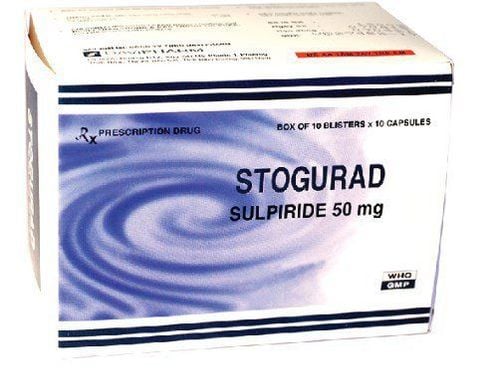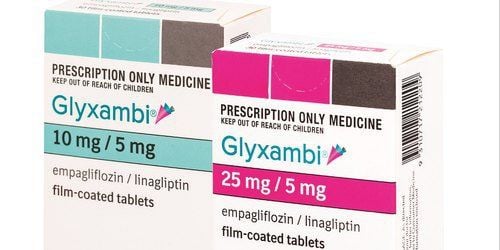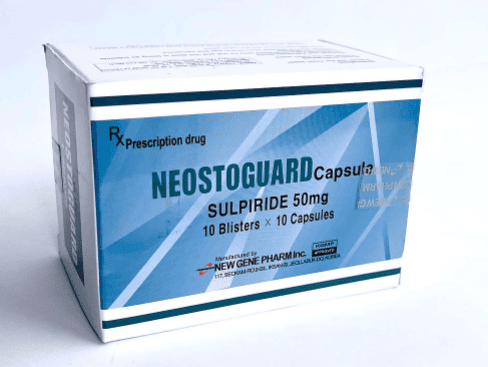This is an automatically translated article.
Antisocial personality disorder is an ingrained thought process that focuses on socially exploratory behaviors, causing delinquency to become criminal. Signs of antisocial personality disorder are most evident in affected individuals who have no remorse for these behaviors.1. What is a patient with antisocial personality disorder?
Antisocial personality disorder is an ingrained and rigid dysfunctional thought process that focuses on socially irresponsible behavior with exploratory, delinquent behavior without remorse. Neglecting and violating the rights of others are common signs of antisocial personality disorder, including disobedience to the law, inability to maintain a steady job, deception, manipulation for personal gain. personal benefit.
Of all 10 personality disorders, which are characterized by dramatic, emotional, and unpredictable interactions with others, antisocial personality disorder is the only one that cannot be diagnosed predictable in childhood. Before the age of 18, the patient must have been previously diagnosed with a conduct disorder and at the age of 15 years should be the criterion for the diagnosis of this condition.
Although the exact etiology is unknown, both genetic and environmental factors have been found to play a role in the development of antagonistic personality disorder. Various studies in the past have shown different estimates of the prevalence of genetic factors, ranging from 38% to 69%. Environmental factors that have been implicated in the development of antisocial personality disorder include adverse childhood experiences (both physical and sexual abuse, as well as abandonment) along with neglect. childhood mental illness.

Rối loạn nhân cách chống đối xã hội là một quá trình suy nghĩ đã ăn sâu và tập trung vào các hành vi
2. What are the signs of antisocial personality disorder?
Typical signs of antisocial personality disorder are disregard for and violation of the rights of others as indicated by 3 (or more) of the following:
Failure to comply with relevant social norms relating to lawful acts; Cheating, lying repeatedly, using an alias or deceiving others for personal entertainment or gain; Impulsive or unplanned; Irritability and aggression, frequent fights or assaults; Subjective to the life of oneself or others; Lack of ongoing accountability, failure to maintain consistent work behavior or respect for fundamental obligations; No remorse, indifference or rationalization of hurting or mistreating others; Patients aged 18 years or older; There is evidence of conduct disorder that often has an onset before age 15 years.
3. How is antisocial personality disorder diagnosed?
There is currently no standard diagnostic modality for antisocial personality disorder. However, genetic testing and neuroimaging have been used to evaluate the underlying psychological causes and patterns corresponding to this personality disorder.
In addition, patients with antisocial personality disorder are at increased risk of certain viral infections and sexually transmitted diseases associated with high-risk behavior, including hepatitis C and human immunodeficiency virus, as well as increased rates of death from accidents, injuries, suicides, and homicides.

Dấu hiệu rối loạn nhân cách chống đối xã hội điển hình là coi thường và vi phạm các quyền của người khác
4. How to treat antisocial personality disorder
Although countless interventions have been tested, the effectiveness of antisocial personality disorder is unclear. Some evidence suggests that early intervention for conduct disorder in children is more effective. However, researchers have used several psychotherapies, and due to the severity of potential harms in adulthood, careful consideration is needed when determining a course of treatment at an early age. em.
Most cases of antisocial personality disorder can be resolved in the outpatient setting. Hospitalization is required when treating co-occurring conditions or possible complications, such as substance abuse withdrawal or recent suicidality.
Although there is still insufficient evidence of measures to support any psychological intervention in adults with antisocial personality disorder, several medications have been recommended for symptom control. In particular, aggressive behaviors are treatable with second-generation antipsychotics as first-line therapy, including risperidone (2 to 4 mg/day), quetiapine (100 to 300 mg/day). 2nd and 3rd therapies for aggression include selective Serotonin reuptake inhibitors (SSRIs), Sertraline (100 to 200mg/day) or Fluoxetine (20mg/day), mood stabilizers; Lithium and Carbamazepine (recommended dosage for bipolar disorder) were administered respectively. In addition, anticonvulsants, such as Oxcarbazepine and Carbamazepine, may be used to help with impulsivity.
In short, an individual diagnosed with antisocial personality disorder will be a burden to family, co-workers and those around them. Not only that, mental health comorbidities and related addiction disorders as well as higher rates of death from suicide will add to this burden. Therefore, drug or psychotherapy should be considered when any early signs of antisocial personality disorder are suspected in a person, helping them to be able to integrate into the community in adulthood. .
Please dial HOTLINE for more information or register for an appointment HERE. Download MyVinmec app to make appointments faster and to manage your bookings easily.
Reference sources: mayoclinic.org, webmd.com












